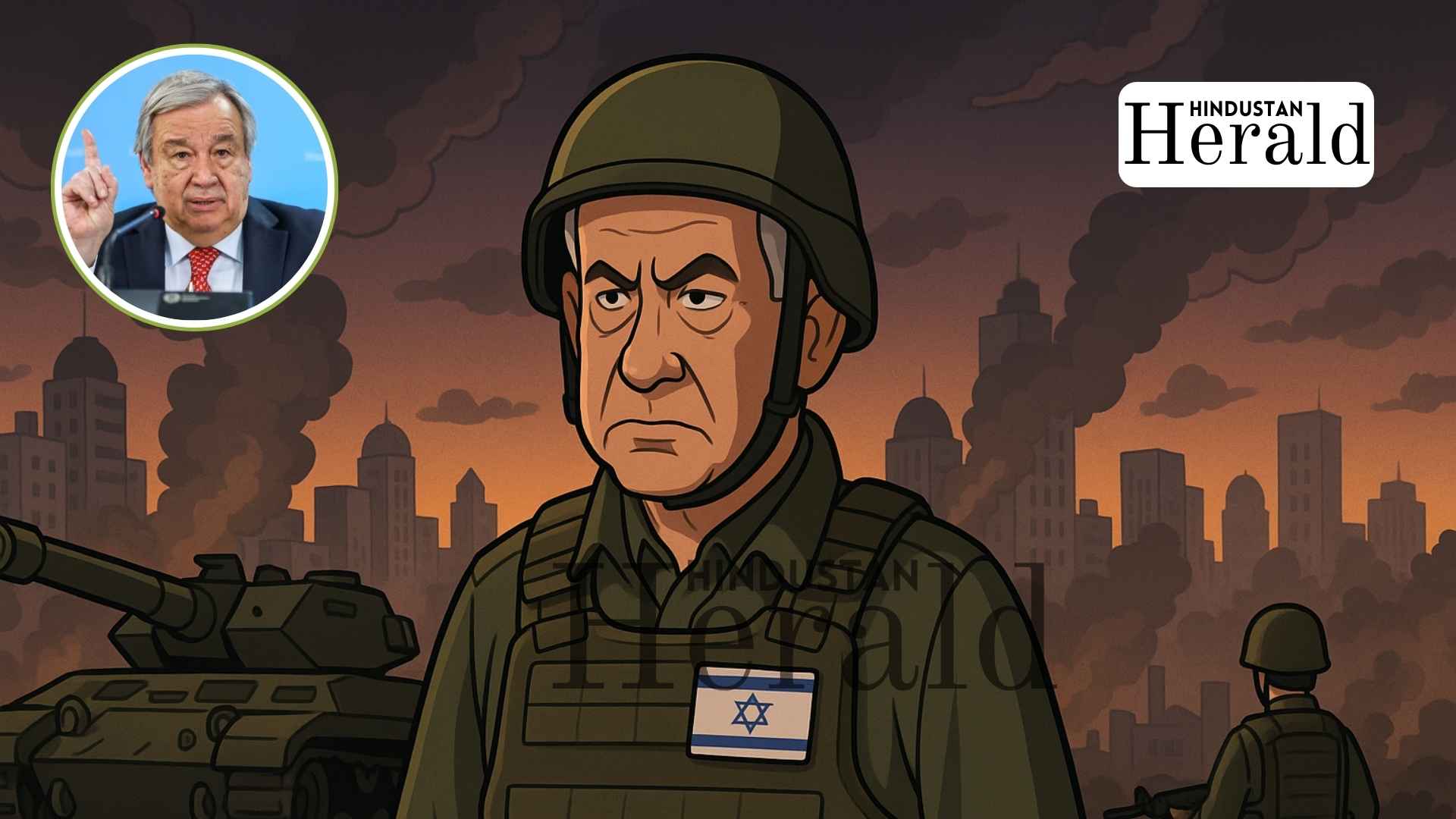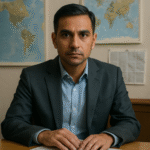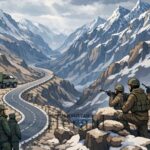New Delhi, August 9: By the time the announcement left Jerusalem late on Friday night, phones were already buzzing in capitals from Washington to Doha. The Israeli security cabinet had voted and the decision was clear. Troops would move in to Gaza City. Not a raid. A takeover.
Standing before cameras, Prime Minister Benjamin Netanyahu called it a “necessary step” to break Hamas’ hold. The sequence, he said, would be military control first, then a security buffer, then at some point administration handed to “Arab forces.” No one yet knows who those forces might be. No one knows if they’ve even been asked.
UN Response: Fast, And Firm
In Geneva, Volker Türk, the UN’s High Commissioner for Human Rights, did not waste words. The plan, he said, “must be immediately halted.” His office’s estimate: up to 800,000 Palestinians could be pushed from their homes.
“It would be a humanitarian disaster within a humanitarian disaster,” he warned, speaking over a shaky video link. He repeated the UN’s long-standing demands stop the fighting, open the crossings, free the hostages and detainees.
Hours later, from New York, António Guterres added his voice. The UN Secretary-General called it a “dangerous escalation”, warning that forced displacement of civilians is a direct breach of international law. His statement had the clipped tone of someone repeating a rule they’ve quoted too many times before.
Security Council Meeting Brought Forward
That pressure will now play out at the UN Security Council, which moved its emergency session to Sunday instead of Saturday. It’s a small shift, but in diplomacy, 24 hours can be the difference between reacting and intervening.
Several members are preparing to demand that Israel suspend the operation, according to AP News. The hurdle, as always, will be the veto. Washington has used it before to block resolutions critical of Israel. No one is betting heavily on this one passing.
The India Link
This isn’t an abstract crisis for India. More than nine million Indians live and work in the Gulf in countries that watch Gaza closely. Oil tankers carrying India’s energy supplies pass daily through the Suez Canal and Red Sea, waters that have seen disruptions before when regional conflicts flare.
India’s diplomacy here is a balancing act. Defence and technology links with Israel have grown steadily. Yet at the UN, India has repeatedly backed humanitarian protections for Palestinians. Each escalation makes that balance harder to hold.
On The Ground In Gaza
Conditions in Gaza were dire before this. According to Reuters, aid trucks have been turned back, hospitals are full, and clean water is scarce. Families have dug shallow wells in some districts, pulling up brackish water just to get through the day.
A senior humanitarian official told Reuters, “You can’t move this many people here without losing lives to hunger, to illness, to sheer exhaustion.” He didn’t elaborate. He didn’t have to.
A Pattern, And A Warning
Israel pulled its permanent forces from Gaza in 2005 but kept control of its airspace and borders. Since then, the territory has endured war after war: 2008–09, 2014, more in between. Each left behind wreckage, grief, and a fragile calm that never lasted.
This plan feels different to many observers. It’s not framed as a short-term operation. There is no clear end date.
The Next Two Days
By Sunday night, diplomats will have had their say in New York. In Gaza, families will still be deciding whether to stay or leave if leaving is even possible.
It’s not the first time Gaza has stood on the edge of something worse. But each time, the edge seems steeper. And each time, the world promises not to let it happen again.
Stay ahead with Hindustan Herald — bringing you trusted news, sharp analysis, and stories that matter across Politics, Business, Technology, Sports, Entertainment, Lifestyle, and more.
Connect with us on Facebook, Instagram, X (Twitter), LinkedIn, YouTube, and join our Telegram community @hindustanherald for real-time updates.
Specializes in South Asian geopolitics and global diplomacy, bringing in-depth analysis on international relations.






